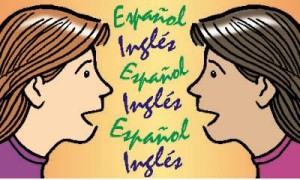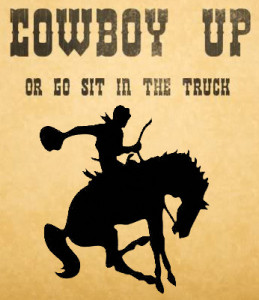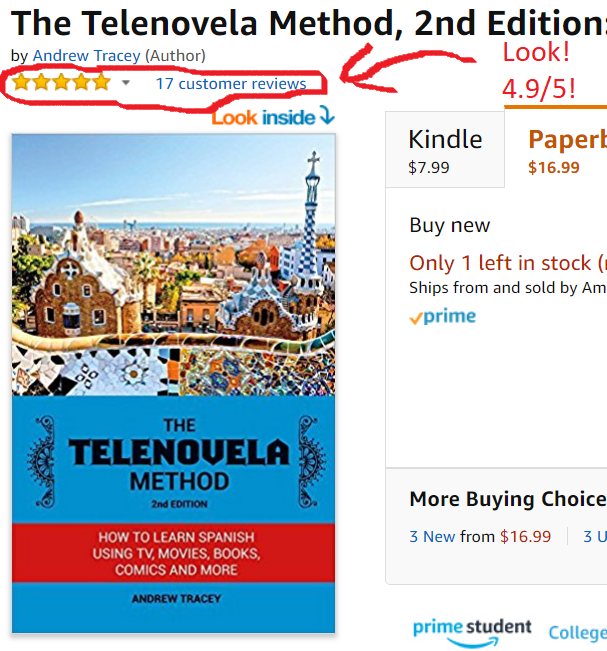 The only way to learn to speak a language is to do so, horribly at first.
The only way to learn to speak a language is to do so, horribly at first.
That’s it. Get it through your head, there’s no getting around it. The only way to learn how to speak a language is to do so or, really, to try to do so, horribly at first while making lots of mistake, with a native speaker who’s willing to humor you and correct you. This definitely requires someone with some degree of patience and a desire to help you, whether because they’re your friend, you’re paying them, or you’re doing something for them in exchange (such as helping them with a language they’re learning that you already speak, hint hint).
No amount of passive listening or reading, or even active work such as doing exercises or repeating aloud after native speakers who you’re listening to in a language-learning program (Rosetta Stone, Synergy, Pimsleur, etc.) or movie or TV show, can possibly make you fluent, can possibly teach you how to effectively speak the language and hold a conversation with someone in it. It just won’t do it. All those things are extremely valuable, necessary, and among the things I recommend that people do in the process of learning a language, but the real key that takes you from someone who just knows the language (knows the definitions of words and understands the grammar and syntax) and can perhaps understand it as it’s spoken, to someone who can actually use it to communicate, to speak at full normal conversational speed, in real time, is actually speaking with native speakers. Honestly, they don’t even have to be native speakers per se, just someone who speaks the language properly at a fairly high level of competency, what most of us would call “fluent”.
What’s a language exchange?
Aka “intercambio”, a language exchange is where two people who are learning each other’s respective native languages (e.g. a Spanish-speaker who’s learning English and an English speaker who’s learning Spanish) get together for the purpose of practicing their target language (language they want to learn) with a native speaker of that language and, in exchange, they then help that person with the language that they’re learning which they happen to be a native speaker of. Typically the way it works is that you just agree to talk for X amount of time in each language (e.g. 15 minutes or 30 minutes each) while the other person helps and corrects you so that each person gets an equal amount of time in the language they’re learning, e.g. an American (English speaker) who’s learning Spanish and a Colombian (Spanish speaker) who’s learning English get together and talk for 20 minutes in Spanish while the Colombian helps the American out and then they switch and talk for 20 minutes in English while the American helps the Colombian out. Simple. Got it?
The single most valuable language-learning tool in existence (and it’s available online completely for free)
And that would be [drum roll please]…Language exchange websites + Skype.
And you really do need them both: being able to talk to anybody anywhere in the world isn’t much use if you can’t find people to talk to, and being able to find tons of willing and eager language partners isn’t much use if you don’t have a way of talking to them.
That is, the combination of a language exchange website where you can find and meet potential language partners (people who speak the language you want to learn and who want to learn the language you speak) with the free internet telephone/video service Skype (if you don’t have an account go here and get one now). The really big deal about Skype (or a similar service if you prefer, it’s just that 98% of people doing this are using Skype) is not just that it lets you talk in real-time (like a phone call) to anyone in the world for free, presuming they too have a Skype account (which are free), but also that, if both individuals have webcams, it lets you see the other person in real time as they’re talking so that you get all the benefits to an in-person interaction: real-time speech, facial expressions, and body language.
A language exchange website is basically a social networking website for the specific purpose of finding language exchange partners. You find people who you think will work, message them letting them know that you’re interested in talking with them and speak a language that they’ve indicated they want to learn, and if they agree you just set up a time and date to talk on Skype (almost everybody on these sites already has a Skype account and the overwhelming majority of them, in my experience, also have webcams).
You can find tons of them simply by googling “language exchange”, and please feel free to try out several. My personal top recommendation (that I reviewed here) is iTalki. The language exchange portion of the website (get an account, hover over “Community” in the top menu, select “Language Partners”) is entirely free so you don’t need to worry about that (they make their money through the tutor-student marketplace they have in place).
Conclusion
 This combination of a quick, easy, simple, and fast way to find thousands and thousands of potential language partners online, for free, coupled with a tool that lets you talk face-to-face with anyone, anywhere in the world (presuming both people have internet access), for free, is by far the biggest advance in language learning ever, in my opinion. Nothing else can beat this, it’s just amazing. Language-learners and teachers of times past couldn’t even dream of having a tool this good, I think if you asked them to imagine an ideal language-learning tool – short of something that downloads it into your brain a la The Matrix – they wouldn’t be able to imagine something this good.
This combination of a quick, easy, simple, and fast way to find thousands and thousands of potential language partners online, for free, coupled with a tool that lets you talk face-to-face with anyone, anywhere in the world (presuming both people have internet access), for free, is by far the biggest advance in language learning ever, in my opinion. Nothing else can beat this, it’s just amazing. Language-learners and teachers of times past couldn’t even dream of having a tool this good, I think if you asked them to imagine an ideal language-learning tool – short of something that downloads it into your brain a la The Matrix – they wouldn’t be able to imagine something this good.
Lastly, you really don’t need to have X amount of ability in the language you want to learn before you start doing this. Everyone (all beginners, anyway) seems to think you do: “Well, I just don’t think I’m ready yet. I’ll wait until I’m at more of an intermediate level”, “I’ll wait until I don’t sound like a complete idiot, haha!”, I’ll wait until…”, “I’ll wait until…”. Don’t wait. Yes, even if you’ve only got 2 weeks or 2 hours of Spanish-learning under your belt, yes you really should get on a language exchange, find a partner, and “cowboy up” as we say here in Texas and call them.
Look, they’re learning a language just like you, they’re in your exact same predicament, do you understand that? Do you really think they’re going to judge you or get upset with you just because you don’t speak their language very well? They don’t speak your language very well, and yet they’re willing to try to speak it to you, a native speaker, just like what you’re doing with them. It’s fine. They understand. They know you’re learning their language and aren’t very good at it. Even if they’re not beginners like you and are at a higher level in your language they’re still not going to feel any differently because they were still in your shoes at one point and know what it’s like, they understand.
Nothing will advance your language skills faster than actually talking with native speakers, nothing else will lead to such rapid progress.
Nothing else is as scary either, is it? Oh well, that’s generally how life works in my experience. Time to cowboy up and do it anyway.
I learned to speak conversational Spanish in six months using TV shows, movies, and even comics: I then wrote a book on how you can, too
I have a whole method and a book I wrote about it called The Telenovela Method where I teach you how to learn Spanish from popular media like TV shows, movies, music, books, etc. that you can all find online for free. It was the #1 new release in the Spanish Language Instruction section on Amazon for nearly a month after it came out and currently has 17 reviews there with a 4.9/5 stars average. It's available for $7.99-$9.99 for the e-book version depending on who you buy it from (Kindle version on Amazon is now $7.99) and $16.99 for the paperback (occasionally a bit cheaper, again, depending on who you buy it from).
It's currently available in both e-book and paperback from:
Cheers,
Andrew







